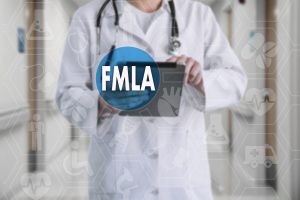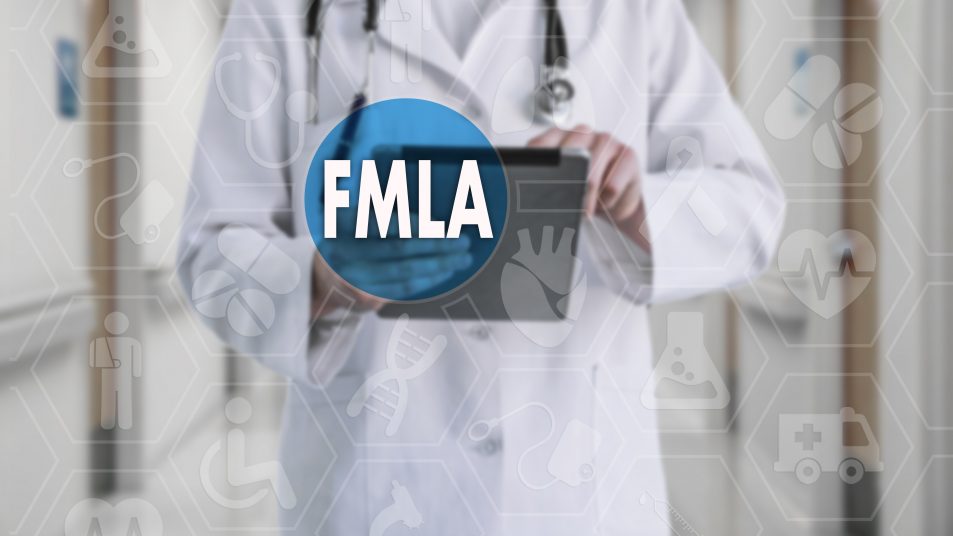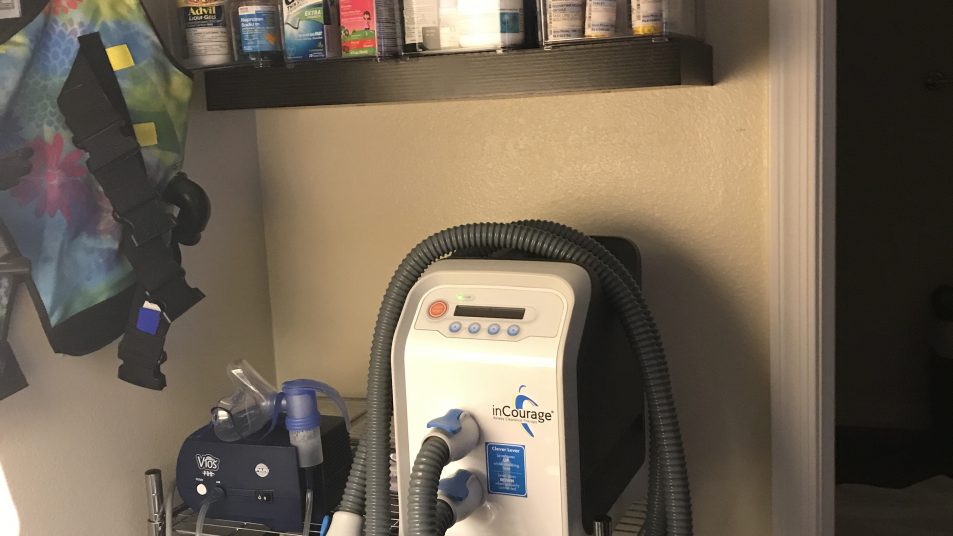 Often, people with Cystic Fibrosis do not get to have jobs or careers. That’s not a negative statement for anyone to take as such, it’s just fact. But as research starts to progress and new medications are developed, tested, and released the reality is that you will (gratefully) be able to focus on a career. This inevitably forces us to look at how we can successfully navigate a balance with work and health care. Here I talk about the experiences I’ve had and the lessons I’ve learned living life with this chronic illness that often requires me to be hospitalized. Of course I speak about my own point of view here, dealing with Cystic Fibrosis, but the same can be applied for any other type of chronic illness that presents some real challenges in this area.
Often, people with Cystic Fibrosis do not get to have jobs or careers. That’s not a negative statement for anyone to take as such, it’s just fact. But as research starts to progress and new medications are developed, tested, and released the reality is that you will (gratefully) be able to focus on a career. This inevitably forces us to look at how we can successfully navigate a balance with work and health care. Here I talk about the experiences I’ve had and the lessons I’ve learned living life with this chronic illness that often requires me to be hospitalized. Of course I speak about my own point of view here, dealing with Cystic Fibrosis, but the same can be applied for any other type of chronic illness that presents some real challenges in this area.
In the United States, as with most countries, we have protections under the American Disabilities Act of 1990. I strongly suggest that you become intimately acquainted with all the statues of this law if you live in the United States. If you live in other countries please research if an equivalent law exists there.
Furthermore, in the US we also have the Family Medical Leave Act of 1993. This allows us to work with our doctors and have what is called Intermittent FMLA that will provide protection of our jobs whenever we need to be hospitalized. However, please take note that these protections do not cover SALARY/WAGES lost due to illness. That is more than likely going to require you to file for short-term disability insurance. And also the FMLA provisions are only offered after a full year of employment. That can be an issue for some of us that are constantly in and out of hospitals or sick at home and on IVs. So that means we need to work with our companies and HR team to make accommodations for us under the ADA until we can get on Intermittent FMLA.
Let’s dive in….
Disclosure
Do you tell your employer about your medical status prior to being hired or do you reserve that for later when you are most affected? The answer is… either or; its a personal choice and its your right. By law they have to take your experience, education, and skill sets in to account when hiring you through the provisions provided under the Equal Employment Opportunity Commission (EEOC) so if you do disclose that you have a disability, they cannot use that to rule you out of an opportunity. However, proving that can be difficult and truth be told you cannot really know if that’s why they didn’t choose you or not. You can choose to not identify, which you have the absolute right to do. This is the option I most suggest personally. Then I do talk about it as part of my interviewing process, as I do require some accommodations to be provided. But at least it gets my foot in the door, or so I’ve found. I would never suggest that you outright deny that you have a disability, unless there is no option to “opt out” of self-identifying, but there should be that option by law. If there isn’t an option to opt out, I would try to contact the recruiter themselves and submit through them.
I Got Sick, Now What?
First thing you need to do is contact the HR department as soon as you know you are going to be away from work for more than 3 days. Your boss is the second person to contact and some folks think it should be your boss first, but no. Trust me. HR should always be first. They know all the options that are available to you that your boss may not know about. So to avoid any conflicts, contact them first. Often, they will be the ones to let your boss know as well of your situation.
I had never worked for someone else’s company except my own until 2014, so I had very little experience with the corporate world. I got sick, with pneumonia no doubt, and had to be hospitalized. I got a doctor’s note and gave it to my boss. He believed that to be enough, but it was not. Come to find out, I ended up getting temporarily suspended for failure to contact HR and take the appropriate channels. So learn from my mistakes…. contact HR first.
HR will walk you through the options you have. Some companies, given special circumstances, may allow you take some unpaid time off if you are out of sick days or vacation or haven’t yet accumulated enough time into those banks yet. Ask about that option! Its best to struggle without pay for a few days or weeks than to have to struggle with being unemployed and have no access to health insurance and benefits at all.
You need to ensure that you speak to your doctor about your job and having them work with the HR department to acquire all the necessary documents. Most doctors will require you to schedule an appointment for such work, do it. I know it sucks to have to pay a co-pay for that purpose, but its necessary. Some doctors make it much more simple. Where I am, in Phoenix, AZ, I have OneMedical which has an amazing app on my phone that allows me direct contact with my primary. Its a great service but you do pay a membership fee to be part of OneMedical. Your CF Center may be able to help you (for those of you that have CF) in getting the paperwork together for free, which is so amazing of them. But any route you take you need to ensure you have your paperwork and ensure you have the right DUE DATES for all of them.
Returning to Work
Congratulations! You’ve pushed through yet another exacerbation or flare up and you are ready to get back to your life. Well… not so fast. Contact HR, make sure they know you are returning to work and on which day. They may ask you to submit an authorization to work with or without restrictions from your doctors, so be sure to ask your doctors ahead of time for that paperwork. You should have it whether or not its asked for. Keep it on file.
Remember to pick up any prescriptions and/or treatments you may still need post your exacerbation and be sure you take the entire bottles with you to work because you want to be sure to have the labels around for reference too. I sometimes will rather take my pills out for the day to put them into a pill box, which helps it be less inconspicuous to those around me but truth it, by law you have to have the prescription labels on you at all times especially if you are driving a car to and from work. So while I do put my pills in the pill box, which is what I would take with me to lunch, I do bring the bottles separately and have kept them in my cubicle and/or backpack or purse.
Lastly, take it easy… do not over exert yourself. You may be past the worst of it but you may not be out of the woods just yet.
Post Care and Follow Up
You’ve made it back to work and things are getting better. Whew! Thanks be to God. But you cannot forget to make time for any doctor visits for post care and of course you have to keep up with your CF Center Clinic Visits whenever they are due. So you still have to work with HR to make time for those appointments. For CF Clinic, its probably best to take the day off when possible, because it can be an exhausting thing. I know that it is for me! When I get home for CF Clinic, I am pooped and need a nap! Listen to your body.
Next thing you want to do is follow up on occasion with HR, to see if policies have changed or if there are any benefits that have opened up for you. You should especially check after your 1 year anniversary. That’s when Intermittent FMLA becomes available to you and there is a lot of protection for people like us behind that act. You may also then qualify for Short Term Disability which will help cover the days you have to take off during your FMLA. So make sure to check in with HR once per quarter.
How to Apply for FMLA
First thing you need to do is qualify for it. You must be employed for a total of 365 days in order to qualify for it. Then you need to submit your applications through your HR department. The forms you need can vary based on your own necessity. For example if you are the employee, your form would be WH-380-E but if you are the parent of a child with Cystic Fibrosis, your form would be WH-380-F. There are other forms if you are in the military or a protected veteran, or a family member of a service member that requires your care. While these forms are available in the link I provided, its also very possible that your employer will have similar forms available through their service providers. So make sure to ask.
Intermittent FMLA allows you set a duration of days per month (or any interval) that would most likely need to be taking off due to your illness. Whereas, Traditional FMLA is almost exclusive for operations and/or lengthier hospital stays. You have BOTH concurrently running, but know that your max is 12 weeks per a 365 day period. That means it is a running total, so that if you took 2 days in June of last year, those 2 days are then accrued back to you on the days you took them of this year. So if you have I-FMLA and take a few days and then later your doctor decided you need to be hospitalized for 2 weeks, you would have to submit a separate form for the 2 week hospital stay that is a T-FMLA and then submit your hours against that claim, not your I-FMLA. Keep in mind, both are charged against those same 12 weeks. But the good thing is that your sick days and vacation days are NOT used up here. So you have those available in addition to your FMLA’s 12 weeks.
Short Term and Long Term Disability
Now FMLA does NOT cover your pay. It just protects your job during your illness. Short Term and Long Term disability insurance is what covers your pay. This coverage can vary based on the benefits that your employers provides to you. Remember that there is no law that states they have to provide you with this insurance, so that’s something you have to look at when it comes to choosing a place to work at. But there are some states that require their employers to provide a means by which to buy it, those states are California, Hawaii, New Jersey, New York, and Rhode Island.
For me, Short Term Disability covered 100% of my salary for the times I needed to take Intermittent FMLA or when I was hospitalized. That’s not typically the case in most jobs as often they will pay 50% or something near there if they offer STDI (short term disability insurance) at all. That’s where we as people with challenges need to really look at where we choose to work. A “inclusion-friendly” company will more than likely offer 80% and up in this situation — many offering the 100% that CA Technologies did for me. This is still a fight in the political landscape, to treat persons with disabilities as fully capable people that can contribute greatly with just a few accommodations.
How to Use Your Intermittent FMLA
So as with pretty much any job that gives you a certain amount of sick time, I would use that first and foremost before applying my I-FMLA. You do only get 12 weeks of coverage so you have to manage that carefully. If I was feeling awful for a few days and couldn’t quite attribute that to CF itself, I’d use sick time first. If it turned out to be longer than 3 days and it was clear that it was CF-related, that’s when I’d use I-FMLA. I tried hard to save up the days where ever I could for any hospitalizations, as those with CF have to have many hospitalizations to combat our chronic infections. This is of course just my own experience and judgments as to when I used I-FMLA vs. sick time, so please do as you feel comfortable with.
As to how to use it, the first thing you need to do is establish a method of operation with your HR department. For me that meant an immediate email to my manager stating the days and/or times that I would need to exercise my paid-time off vs. using my I-FMLA. If I had severe headaches (I often get migraines), caught a cold, or had issues with my fibromyalgia, I would explain that in my email and then log into the HR Portal to log the days as personal sick time. If it was something like one of the infections in my lungs was flaring up and I needed to either be hospitalized for a week or two or just needed to do home care, obvious CF-related things, that I’d let her know that I’d be utilizing my I-FMLA.
For my company, I had Aetna portal that I could log into and claim the days I needed. I would either do this at the beginning if I knew there would be a set number of days I needed off, or at the end of my exacerbations if I didn’t know how long they’d last. I would then take a screen shot of the portal once I logged my time and email that to my manager along with a Doctor’s Note that allowed me to return to work. If you are HOSPITALIZED, that is an important document — a doctor’s note. You will need to have that available so do not forget to ask your doctors for it.
The important part here is to work WITH your HR office, try to understand their needs and abide by their requests. In turn, you will find that they will be more open to helping you and working with you. So that’s really your first point of contact… your benefits administrator in the HR office.
Conclusion
Folks, these are my experiences navigating my cystic fibrosis and continuing to expand upon my career. Yours may be a bit different than mine, but that’s okay. My hope for writing this article is to at least let my fellow chronic warriors out there fighting the good fight for their health know that there are place that will value what you have to bring to the table and that it’s okay for you to ask for help. My body may not be in tip-top shape, but my mind couldn’t be sharper. And the company that manages to see that will surely find in me all the reasons why CAPABILITIES are far more important than disabilities.



 Often, people with Cystic Fibrosis do not get to have jobs or careers. That’s not a negative statement for anyone to take as such, it’s just fact. But as research starts to progress and new medications are developed, tested, and released the reality is that you will (gratefully) be able to focus on a career. This inevitably forces us to look at how we can successfully navigate a balance with work and health care. Here I talk about the experiences I’ve had and the lessons I’ve learned living life with this chronic illness that often requires me to be hospitalized. Of course I speak about my own point of view here, dealing with Cystic Fibrosis, but the same can be applied for any other type of chronic illness that presents some real challenges in this area.
Often, people with Cystic Fibrosis do not get to have jobs or careers. That’s not a negative statement for anyone to take as such, it’s just fact. But as research starts to progress and new medications are developed, tested, and released the reality is that you will (gratefully) be able to focus on a career. This inevitably forces us to look at how we can successfully navigate a balance with work and health care. Here I talk about the experiences I’ve had and the lessons I’ve learned living life with this chronic illness that often requires me to be hospitalized. Of course I speak about my own point of view here, dealing with Cystic Fibrosis, but the same can be applied for any other type of chronic illness that presents some real challenges in this area.


 By no means is Cystic Fibrosis not a degradation of pulmonary function because that’s actually exactly what it is. But that part of the definition, the part that says “degenerative”, doesn’t necessarily have to mean a degraded life or a life “less” lived. I have done some amazing things with the lungs I’ve been given. And that’s mostly due to the diligence of my parents’ care for me and God’s amazing work.
By no means is Cystic Fibrosis not a degradation of pulmonary function because that’s actually exactly what it is. But that part of the definition, the part that says “degenerative”, doesn’t necessarily have to mean a degraded life or a life “less” lived. I have done some amazing things with the lungs I’ve been given. And that’s mostly due to the diligence of my parents’ care for me and God’s amazing work.